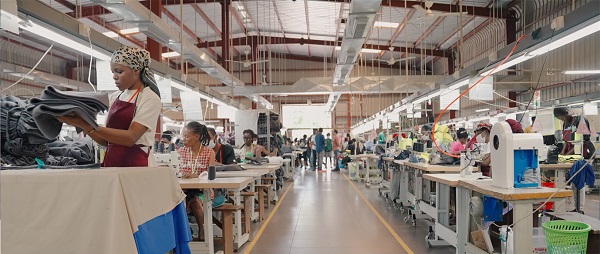Ghana’s ambitions to become a major player in global apparel exports are gaining momentum, with Maagrace Garments Industries Limited (MGIL) set to ramp up production following a strategic expansion backed by Growth Investment Partners Ghana Ltd (GIP).
The investment, led by GIP—a platform established by British International Investment—will fund the construction of a new production facility at MGIL’s base in Koforidua.
It aims to boost output capacity, scale exports and catalyse job creation across the country’s manufacturing sector, with a particular focus on women and youth employment.
MGIL, a subsidiary of UK-headquartered Ethical Apparel Africa (EAA), currently exports over 90 per cent of its garments to major brands in the US, UK and Europe.
With the new facility expected to go live by early 2026, the company plans to significantly increase volume while positioning Ghana as a dependable supplier in the global apparel supply chain.
The expansion is driven by rising demand from both long-standing clients and new international brands. But beyond commercial considerations, MGIL is doubling down on its social impact model.
The co-founder and Chief Executive Officer (CEO) of Ethical Apparel Africa, Keren Pybus, said the growth strategy was both market-driven and socially conscious.
She added that MGIL’s emphasis on quality, innovation and inclusive workforce development “sets it apart from regional competitors and helps build resilience in a volatile global market.”

With over 700 employees (72 per cent of them women), MGIL provides structured training to all recruits.
Workers receive education on workplace standards, health and safety protocols, and sewing-machine operation, enabling new hires to join export sewing lines within four to six weeks.
The company has also established a wellness centre, subsidises meals and transportation, and promotes gender equity, with women holding half of all managerial roles.
“Our aim is to be the best place to work in the apparel industry,” Ms Pybus said, noting that employees earn, on average, four times their previous income.
“Ghana already competes well internationally. As soon as rules of origin and other trade protocols under AfCFTA are clarified, we believe Ghana will emerge as a continental export leader in apparel,” the CEO of GIP Ghana, Jacob Kholi, stated.
